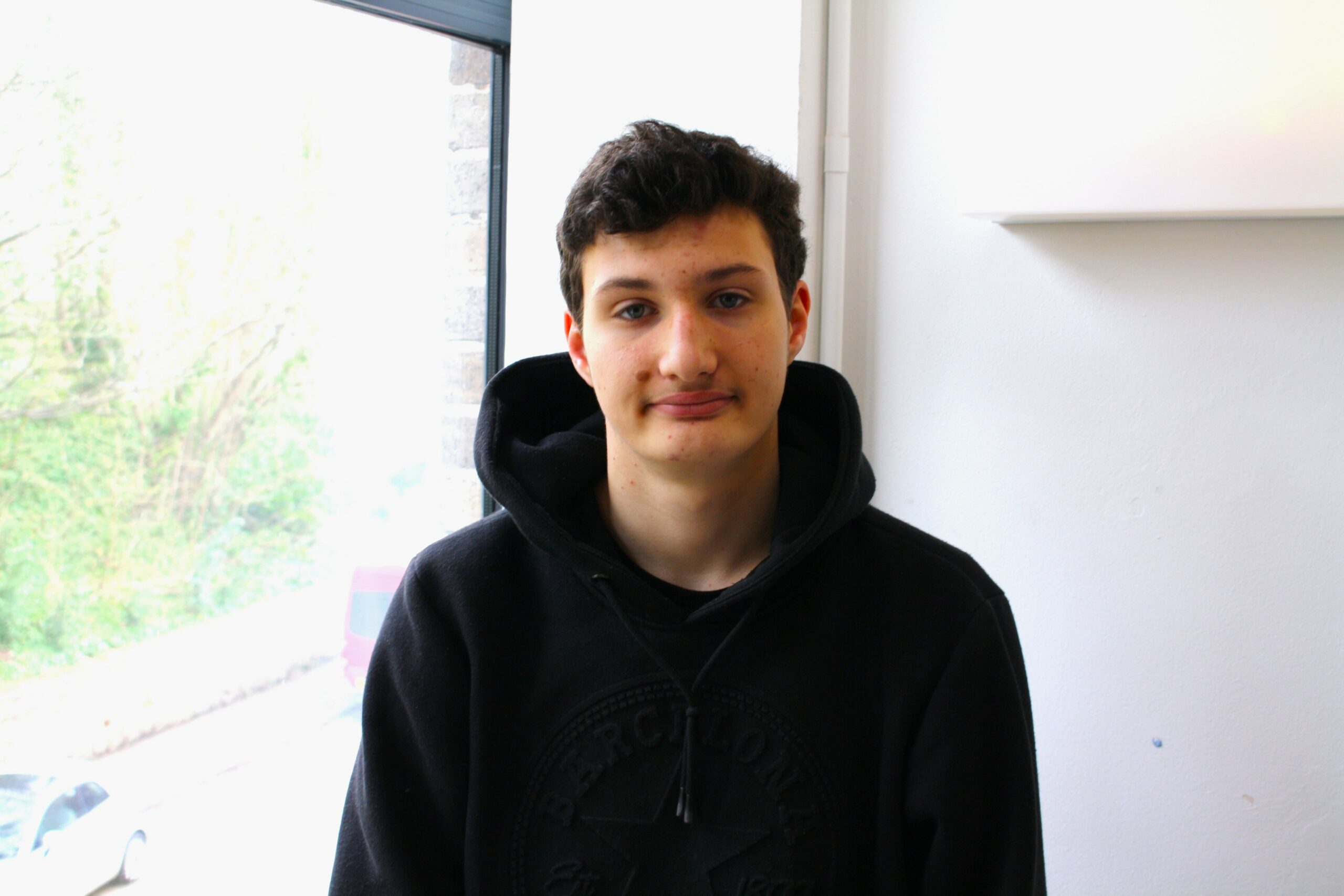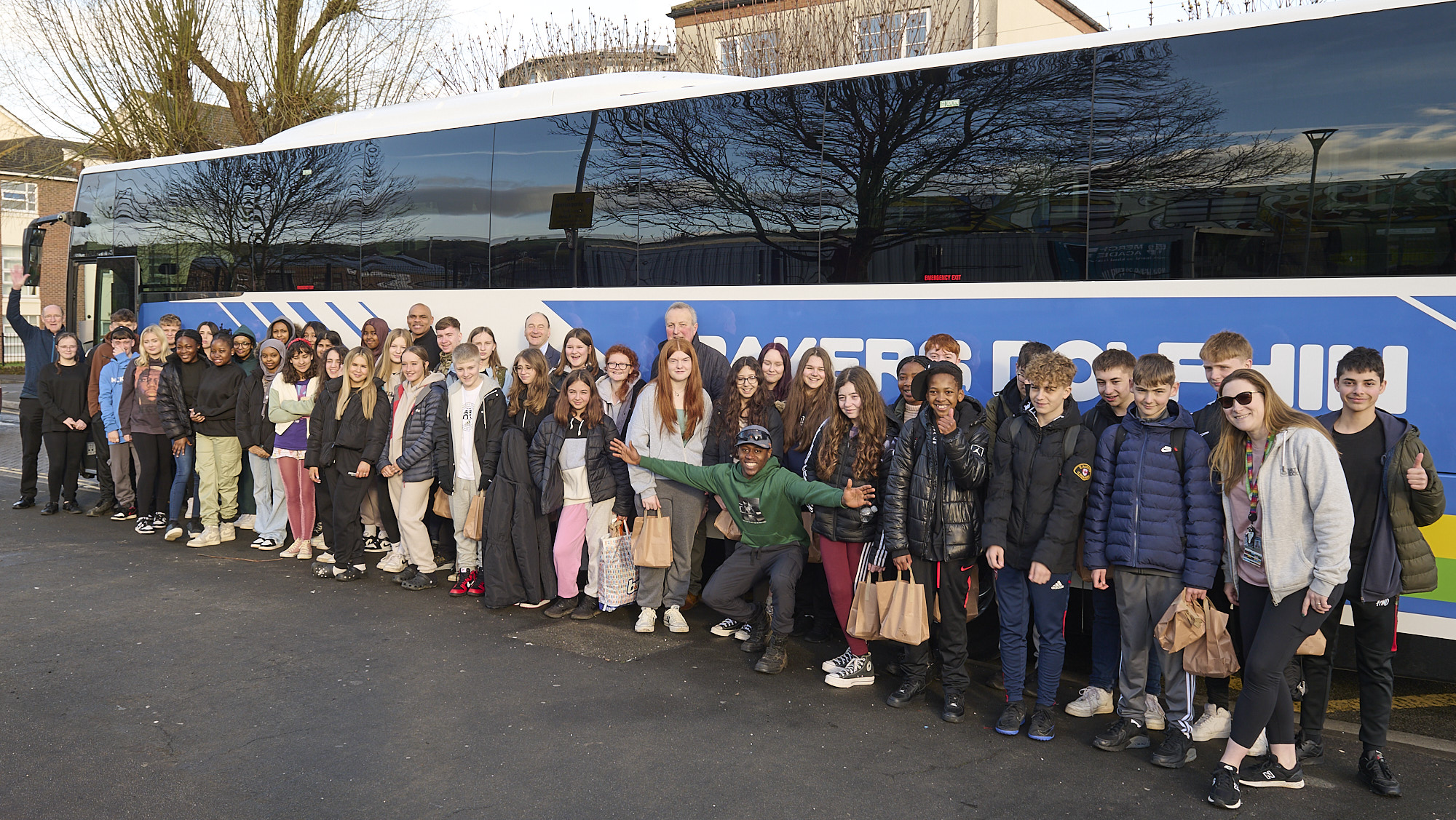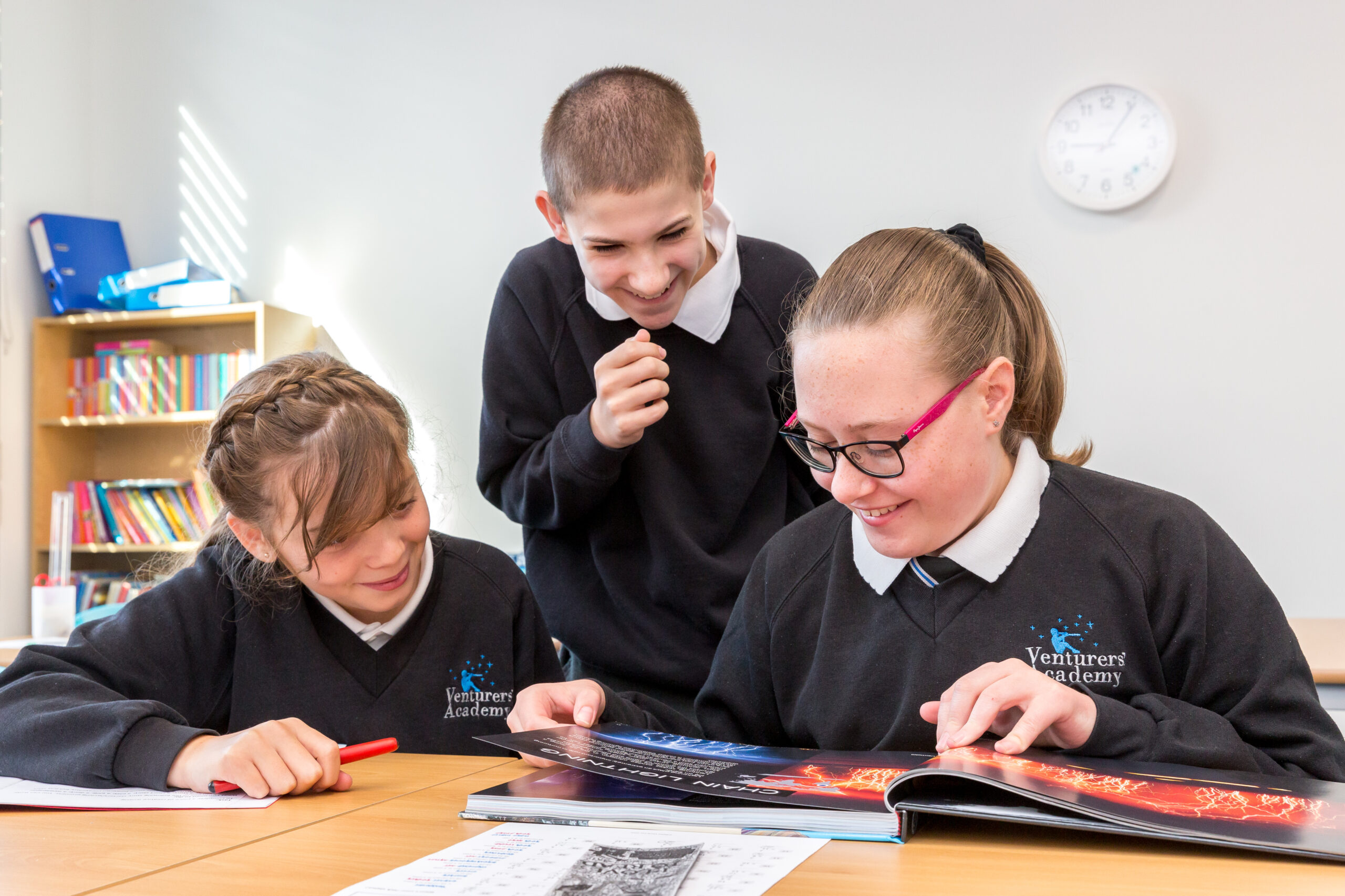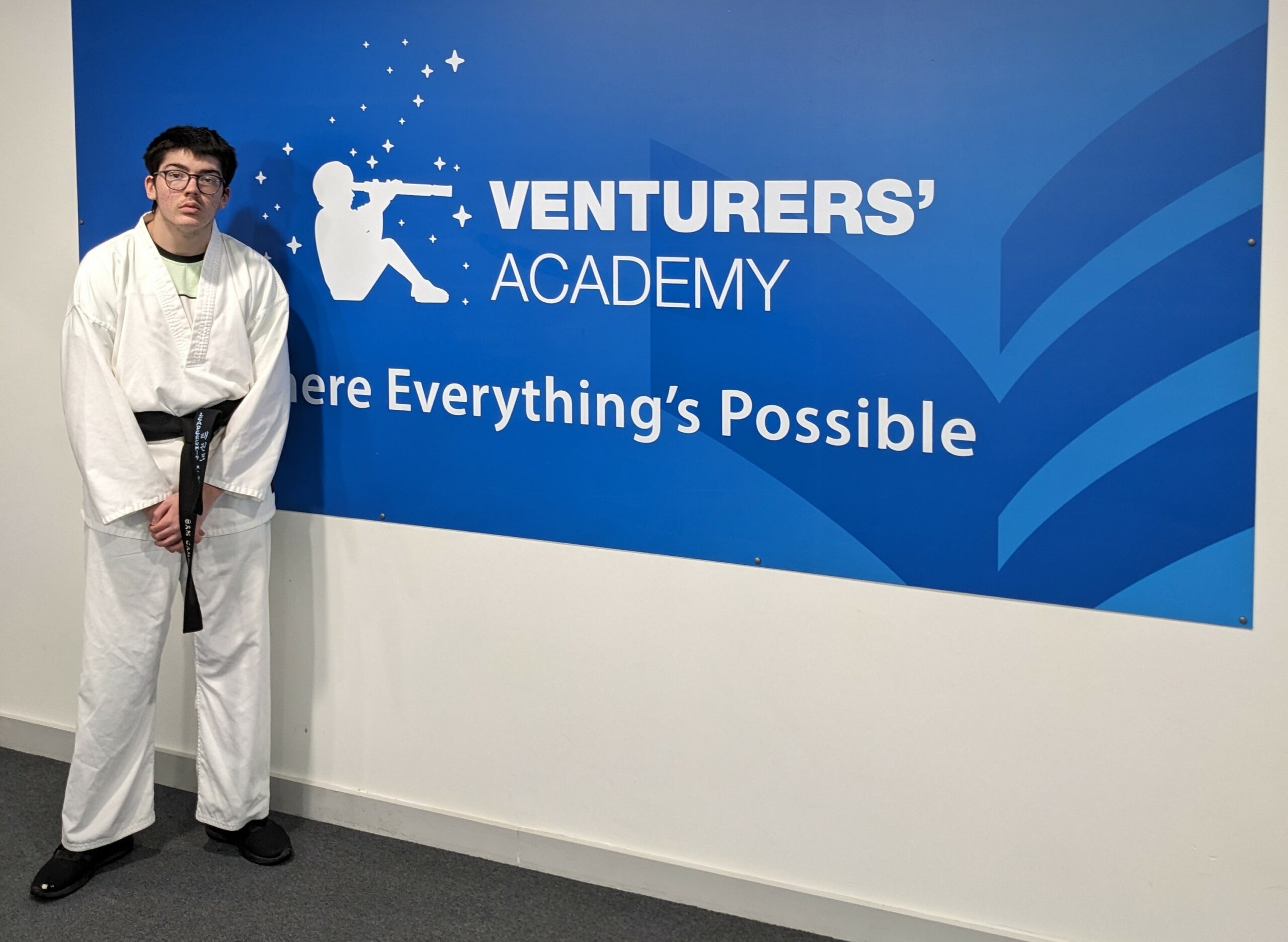The Covid-19 pandemic has accelerated social action, fast-forwarding progress by perhaps a decade. The important work of numerous non-profit making organisations such as charities, voluntary and community groups across the country has been illuminated by sheer need, in particular those working within the most challenged communities where there are multiple inequalities.
When these organisations work in partnership with local people to create a shared vision for their community, change can happen relatively quickly, a collaboration often referred to as ‘place-based social action’. The place-based approach recognises that lasting change is significantly more likely to happen when trusted networks build on existing local capabilities and capacity to identify social action opportunities that benefit the community and the place itself.
Bristol is a city of inequality, with areas of significant wealth and severe deprivation. South Bristol is one of the most deprived parts of the city, where inequality is not only financial, but also spans education, health and housing. It is particularly difficult for people to reach their potential and this negatively impacts on their ability to provide for themselves and their families; children and young people can be at risk of exploitation and criminalisation; people have lower life expectancy; and aspirations are hard to achieve.
Many groups and organisations exist to tackle individual issues in South Bristol but Ronnie Brown, Interim CEO for Quartet Community Foundation (Quartet), argues that inequality is systemic and can’t be tackled successfully from one angle alone. “The approach has to be joined-up,” he says. “If we look at one narrow part of society and focus only on improving the situation for a small group for a short period of time, we’re effectively applying a sticking plaster – when it falls off, the problem returns but the people or organisations providing the support are gone.
“There’s no doubt that the solution lies at a local level where the communities themselves improve the place where they live through social action. However, lasting change requires long-term commitment and support, where funders will take the time to listen and respond to what communities themselves want to change.”
Quartet has been delivering place-based support for several decades – focusing their grant-making activities on targeted areas of the region to help empower and support local charities to have a greater impact. For example, they have a long-established relationship with Hartcliffe and Withywood Community Partnership (HWCP), a place-based community anchor organisation. HWCP is a charity that empowers local people to make decisions about local issues, delivering projects and promoting partnerships between the community, businesses, Bristol City Council and voluntary groups.
Melanie Monaghan, Interim Director for HWCP, has seen first-hand how the residents of South Bristol have learned to pull together, applying their skills and resources to navigate what she describes as “the long-standing, systemic challenges they often have little or no control over”. She cites anti-social behaviour as an example. “Stepping up police patrols or increasing penalties for offenders may deal with the immediate issue, but we have to address wider societal issues at a grassroots level and support children and young people to identify how they can influence positive change in the place they live.
“One effective route is to engage with young people in primary school, drive up their aspirations and provide better opportunities – not because they’re defined by a metric as ‘disadvantaged’ but because they are capable young people who have a right to a bright future and, as a community, we want to help them achieve ambitious goals. This outcome benefits the entire community over the long-term.”
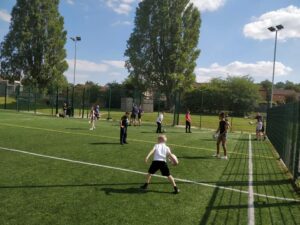
In 2019 HWCP secured a three-year funding stream through a national initiative. Joint-funded by the National Lottery Fund and the Department of Digital, Culture, Media and Sport, in total the national initiative committed a budget of £4.5m to support ten organisations from different parts of the UK to implement a social action plan, of which HWCP was one.
This significant investment was increased further by a grant of £120,000 over two years from Quartet, as well as £25,000 donated to HWCP by the Society of Merchant Venturers (SMV). To date, the funding has supported *scores of social action initiatives in South Bristol, including several high-impact projects being delivered by South Bristol Youth (SBY), such as the **Learning to Lead programme.
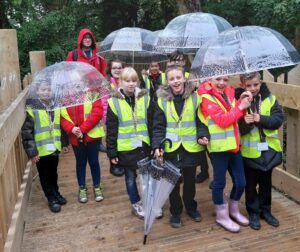
SBY is a well-established local charity that helps young people to develop the skills, knowledge and confidence to access apprenticeships, higher education and high-quality employment when they leave school. As a consortium of seven secondary schools and two universities, SBY helps young people to fulfil their potential by delivering a broad range of programmes designed to empower, upskill and improve the confidence of young people from South Bristol and the wider South West.
Camilla Chandler is the Chief Executive for SBY and over the past nine years she has seen hundreds of young people from South Bristol benefit from the charity’s support. “We’re currently working with 34 individual schools, providing a whole range of programmes including outdoor activities, drama, cultural experiences, core skills and pathways to apprenticeships and higher education. The potential of every student is huge and we want to help unlock that potential.”
Camilla says that challenging out-of-date stereotypes associated with South Bristol is long overdue. “The young people we work with are more than capable of being leaders of the future. Across the city, we should look up to the residents of South Bristol as inspirational role models who are bringing about positive social change from within the heart of their own community.”
The gradual withdrawal of government-funded youth and community workers over the last ten years is a consequence of austerity that has left a void in leadership for many community action initiatives. Civic-led community anchors such as HWCP are increasingly important and require long-term support to remain sustainable and effective, particularly to deliver lasting change through effective engagement with young people.
“Short-term funding programmes are helpful but the success of social change can’t be measured in a finite period of time, so long-term commitment by funders is essential,” says Ronnie. “Effective systemic change happens over a generation and that’s why the role of SBY working in primary schools is so important, we have to engage with young people at an early age. It’s part of a much bigger picture that over time creates systemic change driven and delivered by the community itself.”
SMV, a Bristol-based social purpose organisation, has been supporting projects in South Bristol for over a decade. The sponsorship of Merchants’ Academy in Withywood, a relationship that began in 2006, is one example of SMV’s long-term commitment to the region. Its leader, Gillian Camm, says: “Partnerships based on mutual trust are essential to deliver serious change at a local level. HWCP requires impactful funding to deliver a range of community-led initiatives underpinned by economic and social inclusion that bring about change. We recognise that this doesn’t happen overnight and we’re grateful to Quartet for bringing together a number of organisations willing to make a long-term commitment to contribute in different ways to achieving social change in South Bristol.
“HWCP drives the agenda because they understand the issues at a local level and are already working effectively with different parts of the community to deliver a range of successful programmes. SBY supports the work of HWCP in schools, enabling young people to benefit directly from expertise that is geared towards their interests and needs and provides valuable opportunities to help them achieve their enormous potential.”
The place-based social action approach brings together organisations that share a common purpose, creating the capacity to tackle multiple inter-related issues at the same time, rather than individual groups addressing single issues in isolation. In South Bristol, the vital components for successful place-based social action are already in motion: driven by the community, HWCP has local knowledge of the issues, direct contact with local people and the mechanism to implement change; SBY has a long-standing relationship with HWCP, the expertise and resources to deliver practical support programmes for young people in primary schools; and a long-term commitment to funding has been provided by Quartet and SMV, alongside a significant funding injection from the national place-based social action scheme.
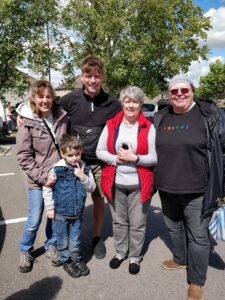
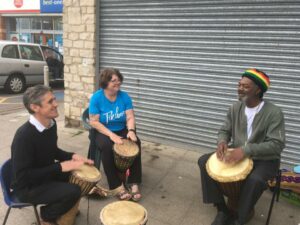
“By uniting our voices and resources, and aligning our goals, we start to see the impact of partnership through real, lasting change,” says Ronnie. “The pandemic has shone a light on community-led organisations, without which we would certainly have seen a humanitarian crisis in the UK. Many of these organisations have been around for a long time and others have sprung up as a result of the pandemic, but all of them are examples of social action delivering change locally – and when social action becomes sustainable over the long-term, communities flourish.”
‘Place-based social action’ might be a relatively new term, but communities have been working hard to help themselves for generations. The difference now is that there is a coordinated approach to tackling inter-related issues within a community in order to achieve long-term change.
“South Bristol is setting a high benchmark for other cities and regions in how to deliver lasting change at a local level,” concludes Ronnie. “This is a working example of good practice that we hope will inspire other parts of the region to develop a collaborative approach to addressing systemic inequality, coming together to make lasting improvements to the place they call home.”
*Hartcliffe and Withywood Community Partnership (HWCP) Coordinates Social Action Initiative
In 2019 HWCP secured a three-year funding stream through a national initiative joint-funded by the National Lottery Fund and the Department of Digital, Culture, Media and Sport. In total the national initiative committed a budget of £4.5m to support ten organisations from different parts of the UK to implement a social action plan, of which HWCP was one. This significant investment was increased further by a grant of £120,000 over two years from Quartet Community Foundation, as well as £25,000 donated to HWCP by the Society of Merchant Venturers.
Funding for the HWCP social action initiative has already supported numerous projects and programmes across the community. For example, HWCP was able to meet the cost of developing and coordinating, in partnership with other local organisations, a set of community-led youth service activities in the Hartcliffe area aimed at raising the aspirations of young people. A free after school programme is delivered every day, focusing on sports, music and other activities, all delivered by local volunteers. The programme has been hugely successful, with an average of 200 young people taking part during a typical week, pre-Covid, with plans already in motion to restart the programme as lockdown is eased.
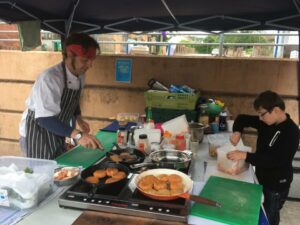
HWCP also used the funding to commission Grassroot Communities to deliver a reconnect project for mums and their children, following a successful project for dads and their children. Learning a variety of bushcraft skills together has helped participants to build confidence and improve relationships by sharing positive experiences.
A particularly popular initiative is the Community Meal, which has created many new friendships within the community. Up to eight volunteers prepare food at home and then bring it to All Saints Church on Mowcroft Road to share with the 50-60 people who attend each week. The Community Meal format was adapted during lockdown to ensure that the most vulnerable people did not become isolated and the group is now making plans to bring everyone together again as soon as the restrictions on gatherings are lifted.
Crucially, because of the significant funding stream, HWCP already had a robust infrastructure in place to provide far reaching support to the community when Covid-19 hit. Working with Bristol City Council, HWCP received over 300 referrals for support during the first lockdown alone. They were able to support over 50 volunteers to help vulnerable people, collecting shopping and prescriptions, walking dogs and providing a befriending service. The social action funding pays for one full time member of staff who was redeployed as a volunteer co-ordinator throughout each lockdown, which meant that HWCP could respond very quickly to the needs of the community by making effective use of so many volunteers.

** South Bristol Youth: Learning to Lead Programme
South Bristol Youth (SBY) is a local charity that helps young people to develop the skills, knowledge and confidence to access apprenticeships, higher education and high-quality employment when they leave school. Amongst many successful initiatives is the Learning to Lead programme, which aims to develop the confidence and skills of primary school children to enable and encourage them to become actively involved in their local community.
The programme was launched in 2019 for pupils in Years 4 and 5 at Hareclive E-Act Academy, with the aim of taking pupils through until Year 7.
As well as providing students with the confidence and skills to take on leadership roles through bespoke sessions and mentoring, the programme includes eight teambuilding activity days such as visits to Wild Place, Clifton Suspension Bridge, Aerospace and Bristol Old Vic.

Building trust and maintaining contact is a crucial part of the programme’s success but the Covid-19 lockdowns threatened to hinder the incredible progress being made by the 22 students currently taking part. With face-to-face Learning to Lead sessions in school temporarily not possible, the SBY team quickly developed alternative strategies designed to maintain the programme’s momentum remotely.
Engaging project packs were posted to every participant throughout lockdown and family members told SBY how much excitement this caused at home and that receiving post in their own name boosted their child’s self-esteem. One parent commented that the activities sent in the post provided the whole family with new challenges and variety, trying things as a family that they hadn’t done before.
However, the positive connections that come from spending time together as a group face-to-face were impossible to replicate in letters, certificates and projects packs – so SBY raised funds to give every participant a tablet to enable the group to meet regularly via Teams.
Being able to connect with students throughout the pandemic has allowed the programme to grow and thrive; and the SBY team is brimming with ambitious plans for the programme as soon as they can recommence sessions in school.
“The young people taking part in the Learning to Lead programme have come on leaps and bounds since we began in 2019. They’ve developed so many new skills, they thrive in a team environment and have developed a real sense of belonging,” said Christine Purnell, Senior Project Lead for SBY. “The programme is designed to build the confidence and skills of younger children so that they start their journey in secondary school as potential leaders who have an awareness of what they can do to support their community and what their community does to support them.”
A parent of one of the Learning to Lead participants said: “Being chosen for the programme has really changed my son’s outlook. He’s eager to go to school, he feels ambitious and believes in his ability to become a leader and I can see many leadership qualities in his behaviour now.”
The Learning to Lead programme is proving to be so successful that SBY is planning to extend the provision into Bridge Learning Campus later this year.


